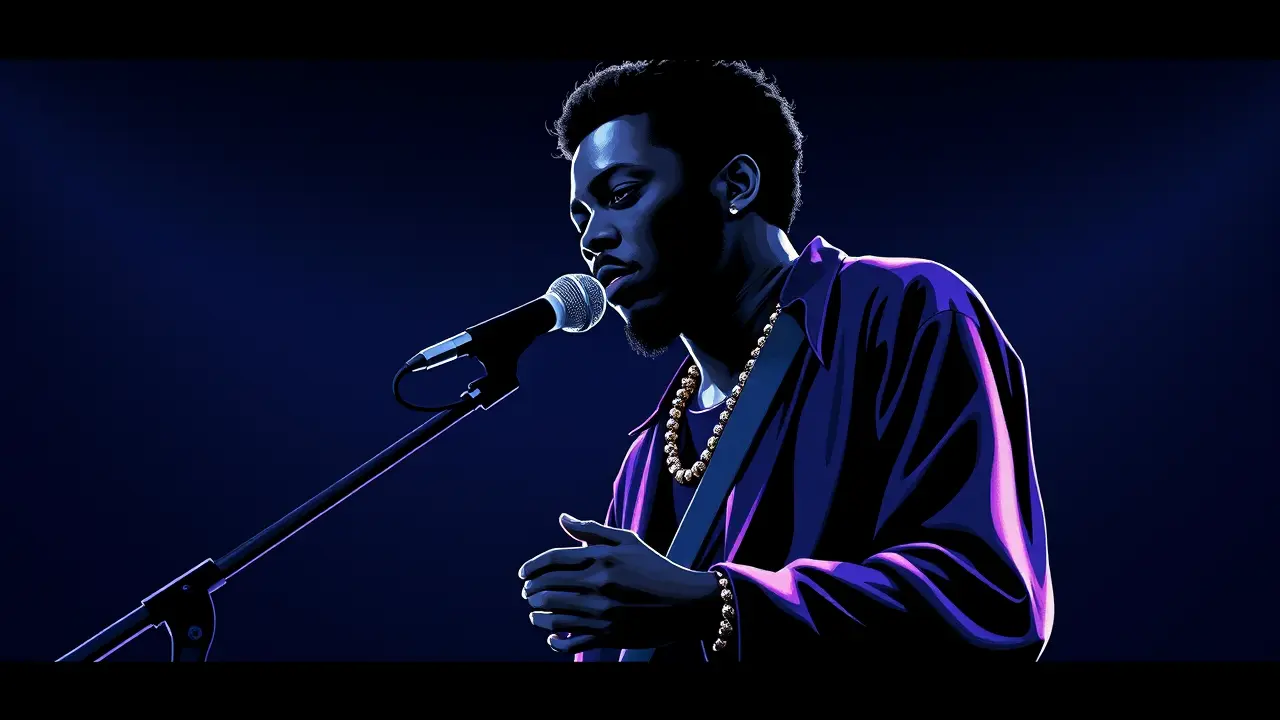Beyoncé Calls D'Angelo a Neo-Soul Pioneer
The news hit the music world with the force of a final, fading chord, a quietus that felt both shocking and tragically premature. D’Angelo, the reclusive genius whose 1995 masterpiece ‘Brown Sugar’ essentially codified the very architecture of neo-soul, has passed away at the age of 51, leaving behind a legacy as rich and complex as the harmonies he so effortlessly conjured.This isn't merely the loss of a great singer; it's the silencing of a foundational instrument in the orchestra of modern Black music, a pioneer whose work provided the spiritual and sonic blueprint for an entire generation of artists, from Erykah Badu to Maxwell and beyond. The confirmation came from none other than Beyoncé, a figure who now carries the torch of artistic innovation he first lit, who took to her platform to anoint him a ‘neo-soul pioneer,’ a title that, while accurate, feels almost too formal for the raw, church-and-sweat-drenched soul he trafficked in.Remember the scene: the late 90s and early 2000s, a period where R&B was becoming increasingly polished and synthetic, all programmed drums and sheen. Then came D’Angelo, a throwback who wasn't nostalgic, a revolutionary who wielded a Fender Rhodes instead of a manifesto.His 2000 opus, ‘Voodoo,’ wasn’t just an album; it was a cultural event, a deliberate deconstruction of perfection. Produced alongside the legendary ?uestlove, the record was famously recorded with the ‘midnight rules’—sessions that began at night and bled into the early morning, capturing the magic and fatigue in equal measure.The drums were sloppy, purposefully behind the beat, the basslines from the late, great Pino Palladino were sinuous and dominant, and D’Angelo’s voice was a multi-tracked choir of grit and grace. The video for ‘Untitled (How Does It Feel),’ of course, became its own phenomenon, fracturing his relationship with his own physicality and the male gaze in ways he would later say he struggled with, leading to his long withdrawal from the public eye.And that’s the other part of his story—the immense cost of genius. The pressure that followed ‘Voodoo,’ the battles with addiction and the weight of expectation, kept him out of the studio for nearly 15 years, making his 2014 return with the politically charged, funk-laden ‘Black Messiah’ all the more potent.That album, released amidst the Ferguson protests, was proof that his creative fire hadn’t dimmed but had instead been refined in the crucible of his struggles. To lose him now feels like losing a library of unwritten songs, a font of future innovation that has been abruptly capped.The outpouring from contemporaries like Questlove, who called him ‘the lion,’ and younger artists like H. E.R. and Anderson.Paak, who directly channel his loose-limbed funk, underscores his enduring influence. He was our Marvin Gaye for a new century, an artist who fused the sacred and the profane, the carnal and the spiritual, into a sound that was utterly timeless.His music wasn't just something you heard; it was a space you inhabited, a humid, late-night room where the air was thick with feeling. The needle has lifted, the record has stopped spinning, but the resonance of D’Angelo’s work, that deep, soul-quaking frequency, will continue to vibrate through the very foundation of music for generations to come.
Latest News
The charts are whispering what the true believers have felt in their bones for weeks—Dogecoin is carving out a bottom.
17 hours ago5 comments
The Institute for Fiscal Studies has thrown a stark warning onto Rachel Reeves's desk, urging the Chancellor to confront a potential £22 billion shortfall in
17 hours ago3 comments
Alright, let's break down this absolute heater of a performance from the Chicago Blackhawks, because if you missed this one, you missed a party.
18 hours ago5 comments
The ice was hot last night in the NHL, folks, serving up a slate of games that felt less like a regular season Tuesday and more like a playoff preview with a
18 hours ago3 comments
The XRP chart is painting a tantalizing picture for those with the stomach to withstand the relentless pressure from crypto's leviathans.
18 hours ago4 comments
It’s in the small shifts, the quiet recalibrations of a Thursday morning, where the most meaningful change often takes root.
18 hours ago4 comments
In a move that sent ripples of quiet confidence through the crypto ecosystem, blockchain intelligence firms tracked a monumental treasury allocation from
18 hours ago4 comments
In a move that would have drawn a nod of approval from historical figures like Churchill, who understood the delicate balance of power within democratic
18 hours ago2 comments
JA
Jamal Washington123k1 day ago
wow 51 is way too young smh his music was just on another level tbh
0
JA
Jamie Lawson123k2 days ago
wow this is hitting hard, his music was the soundtrack to so many late nights for me what a massive loss
0
